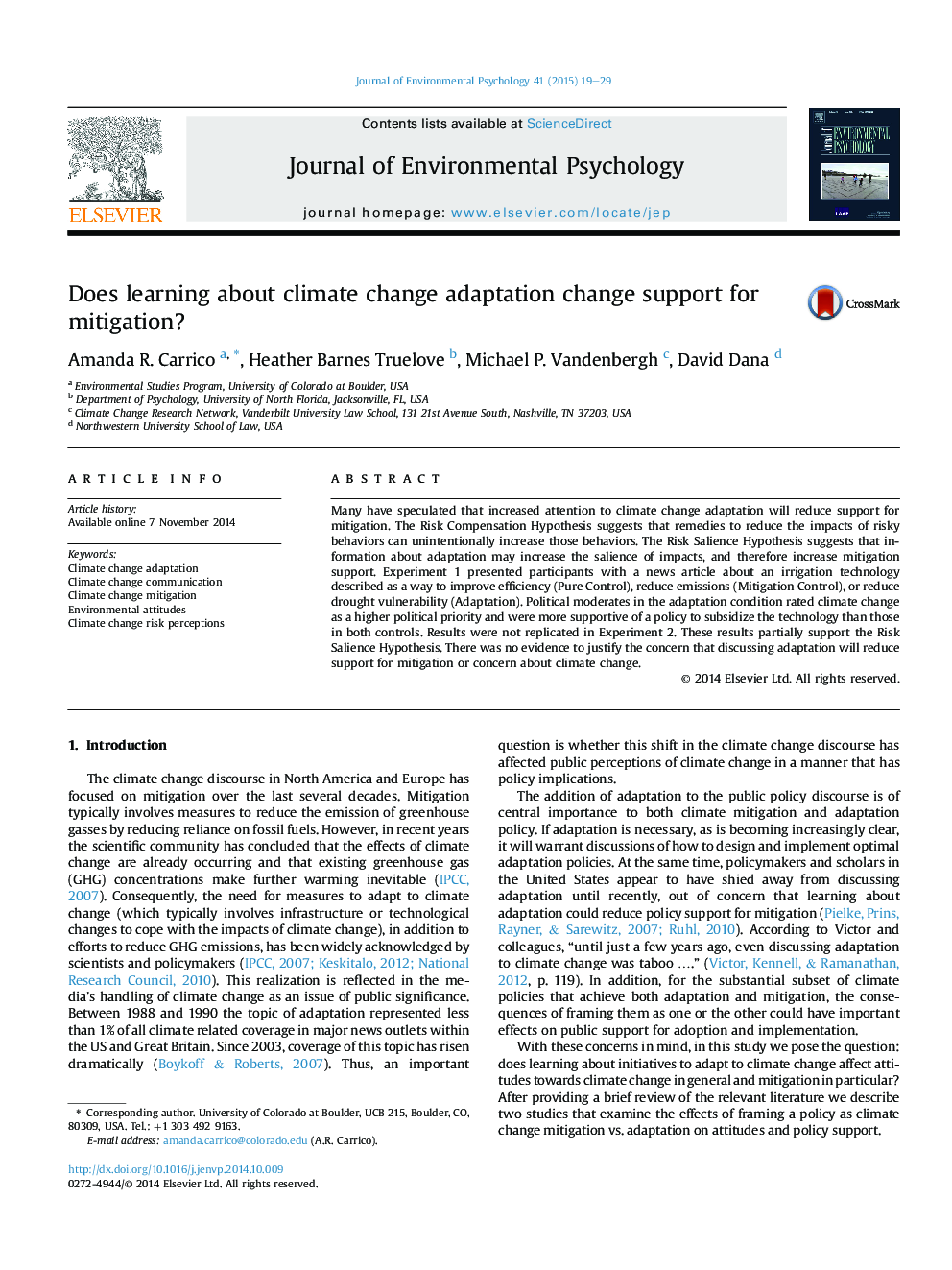| Article ID | Journal | Published Year | Pages | File Type |
|---|---|---|---|---|
| 7245870 | Journal of Environmental Psychology | 2015 | 11 Pages |
Abstract
Many have speculated that increased attention to climate change adaptation will reduce support for mitigation. The Risk Compensation Hypothesis suggests that remedies to reduce the impacts of risky behaviors can unintentionally increase those behaviors. The Risk Salience Hypothesis suggests that information about adaptation may increase the salience of impacts, and therefore increase mitigation support. Experiment 1 presented participants with a news article about an irrigation technology described as a way to improve efficiency (Pure Control), reduce emissions (Mitigation Control), or reduce drought vulnerability (Adaptation). Political moderates in the adaptation condition rated climate change as a higher political priority and were more supportive of a policy to subsidize the technology than those in both controls. Results were not replicated in Experiment 2. These results partially support the Risk Salience Hypothesis. There was no evidence to justify the concern that discussing adaptation will reduce support for mitigation or concern about climate change.
Keywords
Related Topics
Social Sciences and Humanities
Psychology
Applied Psychology
Authors
Amanda R. Carrico, Heather Barnes Truelove, Michael P. Vandenbergh, David Dana,
